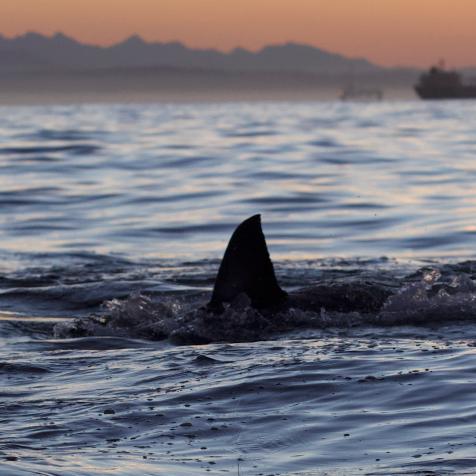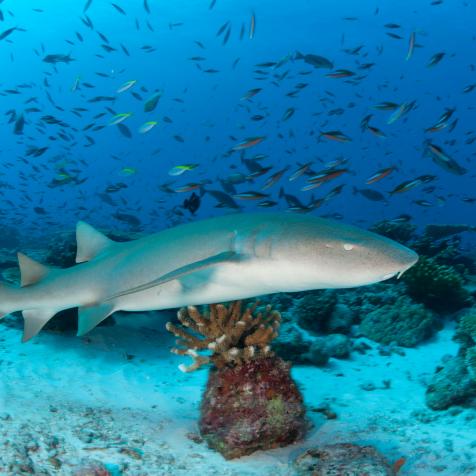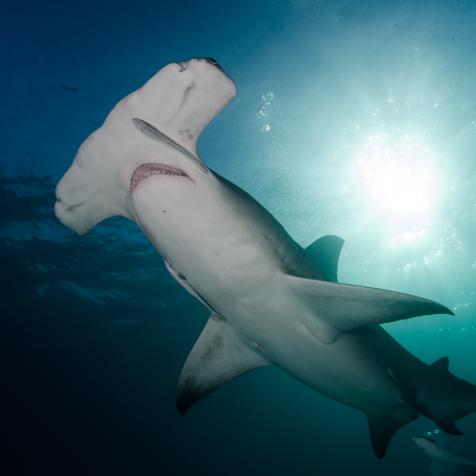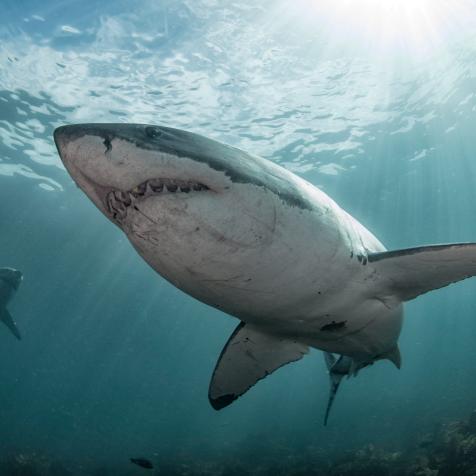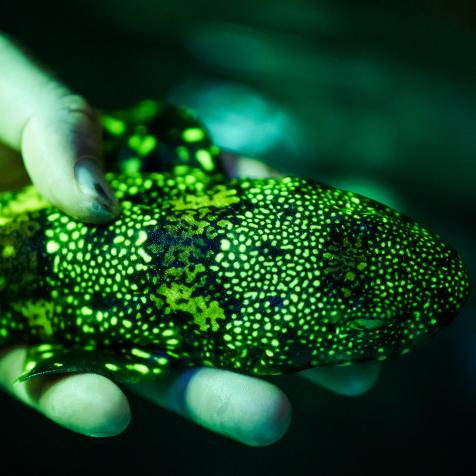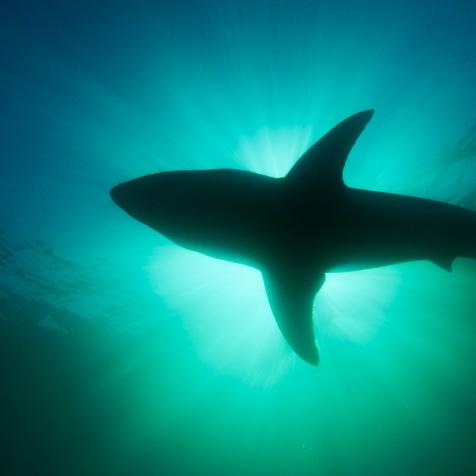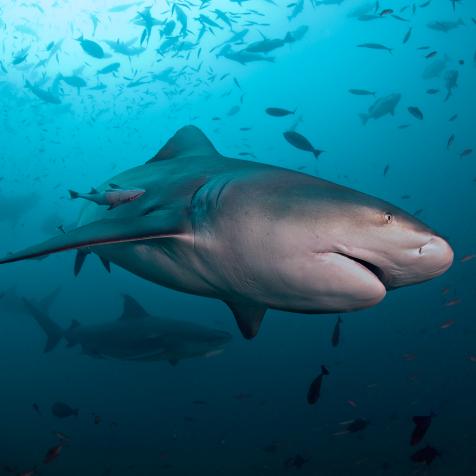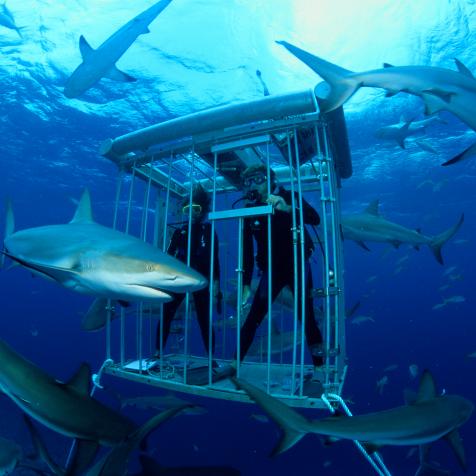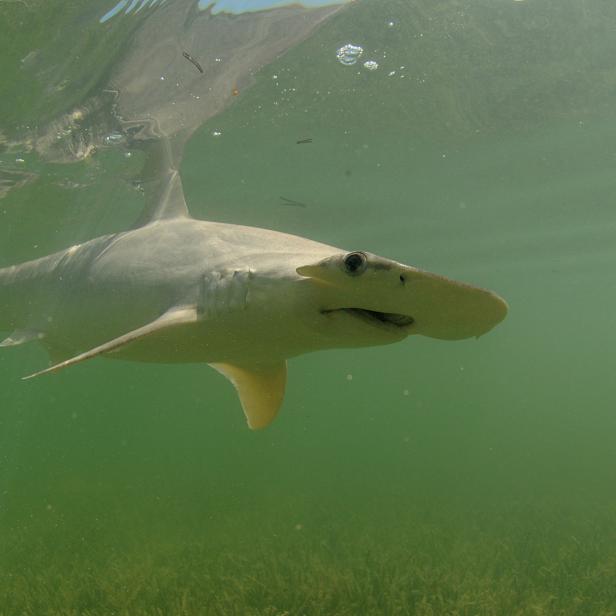
FtLaudGirl
Sharks Eat Plants, Too!
Shark scientists recently dispelled a longstanding belief about shark diets. As the ultimate predator, it’s long been assumed sharks only eat meat. However, a recent study of the Bonnethead Shark (Sphyrna tiburo) revealed that some sharks have an appetite for plants.
Bonnetheads, an extremely common species of Hammerhead, are “flexitarians” -- meaning they’re able to switch between meat and plant-based nutrition.
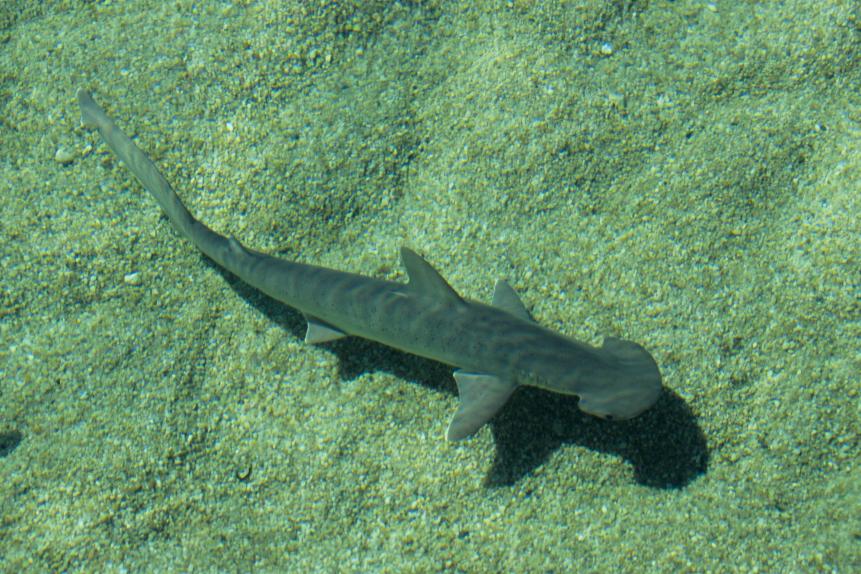
Tom Brakefield
For the past decade, researchers have observed the species eating sea grass, which took up over 62 percent of the sharks’ stomach content. It was assumed this consumption was incidental as they searched for crabs, fish, and other small animals living within the seagrass. But to determine if bonnethead’s were truly omnivorous, they needed to know if the seagrass provided actual nutritional value.
The research team collected five bonnethead sharks, as well as samples of seagrass to grow in their lab. The seagrass was modified with an easily traceable carbon isotope added to the water. When consumed, traces of the grass would be could be tracked throughout the shark’s digestion system.

FtLaudGirl
First, the sharks were fed a diet of 10 percent squid and 90 percent seagrass for three weeks. All of the sharks gained weight, but to confirm their hypothesis that the seagrass provided sustenance, the team then conducted blood tests. The blood tests would determine how much of the seagrass was digested versus excreted.
The chemical tracer was found throughout the sharks’ bloodstream and liver tissue, indicating nutritional absorption of over half the seagrass’s organic content. Furthermore, the bonnethead’s enzymes indicated omnivorous digestion. While carnivores have low levels of fiber digesting enzymes, bonnetheads were found to have high levels of enzymes capable of breaking down the seagrass.
Omnivorous shark diets have immense implications for seagrass habitats. This new finding restructures scientific assumptions about local food chains and how to best preserve the seagrass that serves as a home to significant populations of the world’s sea creatures.










